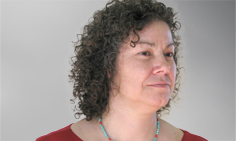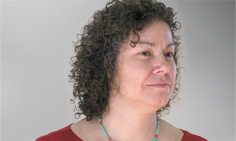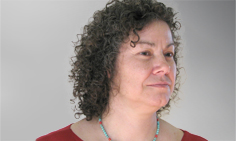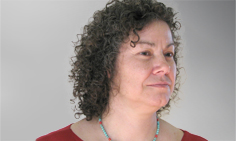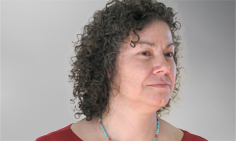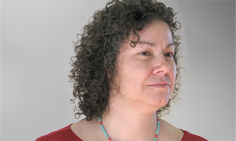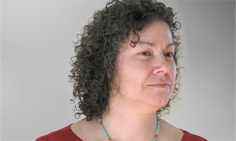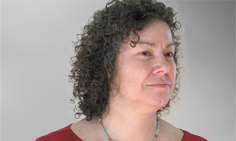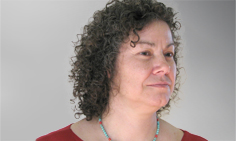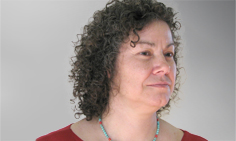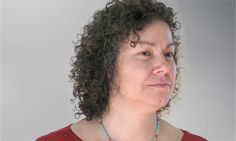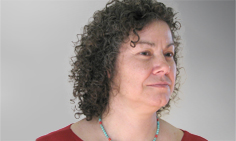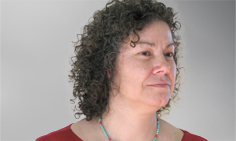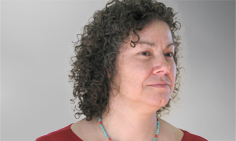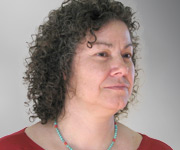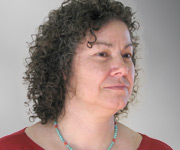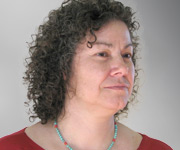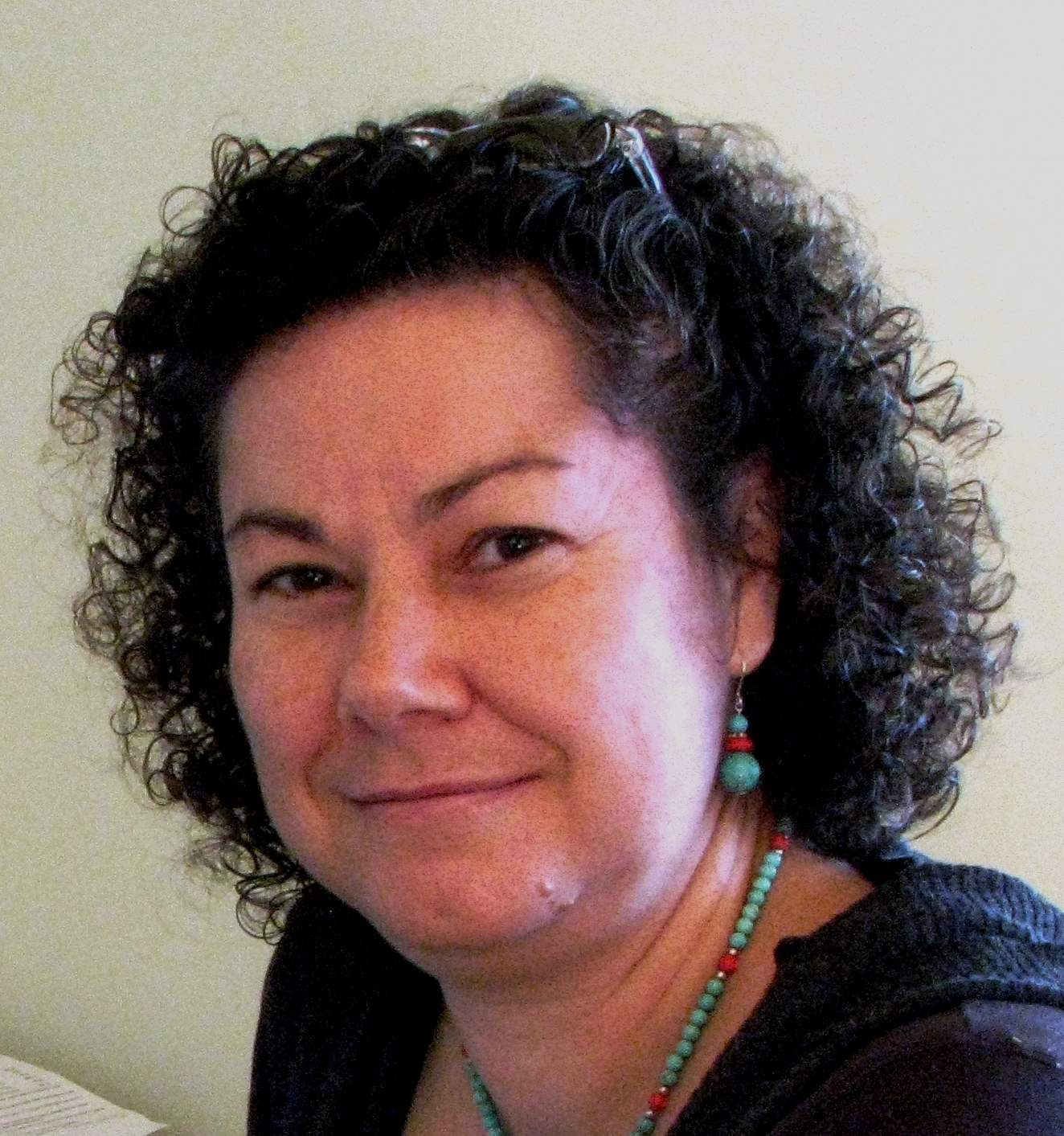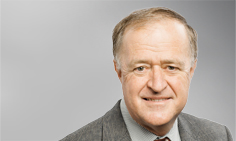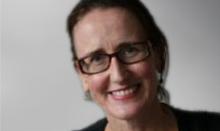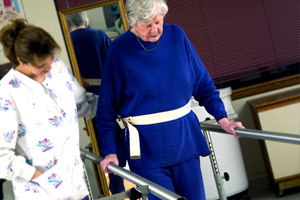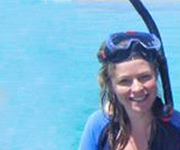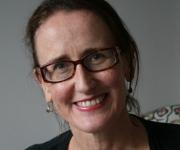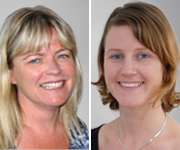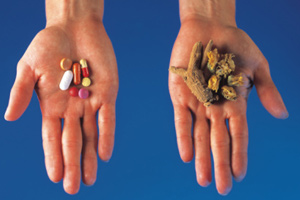Search results: ieraci
-
Issue 48 / 14 December 2015
Sue Ieraci: Engaging gift
CHRISTMAS is a time for giving and it’s a good time to reflect. What do we give our patients, and what do they give us? And do we, as doctors, still want the same gifts throughout our lives, or do our wishes change? Many of us started medical practice with the vague notion of “helping…
-
Issue 43 / 9 November 2015
Sue Ieraci: Fear of harm
I HAVE been thinking and writing about overdiagnosis for some time, and sometimes thoughts and information can come together to make things clearer. It’s good to see the Choosing Wisely campaign has come to Australia — it’s a positive development. However, in my view, it’s…
-
Issue 31 / 17 August 2015
Sue Ieraci: Costly treatment
AM I the only one who sees some irony here? While researching this article, the state premiers were meeting with the Prime Minister in Canberra to shore up funding for health and education. A hike in the GST was being considered. Around the same time, in the MJA there was an editorial calling for…
-
Issue 29 / 3 August 2015
Sue Ieraci: Find the evidence
EARLIER this year, the University of Sydney announced the establishment of a Chair in Integrative Medicine, raising many questions about the rights and wrongs of such an undertaking. The chair is named after the late Maurice Blackmore, who trained in naturopathy and established the well-known…
-
Issue 24 / 29 June 2015
Sue Ieraci: Placenta placebo
WE live in a society where naturalistic fallacies abound — the Paleo diet, traditional remedies, the radical arm of the homebirth movement. It should not be surprising, then, that some women choose to — wait for it — eat their placenta. Cringe worthy, perhaps, but not surprising. Placentophagia…
-
Issue 17 / 11 May 2015
Sue Ieraci: Time to move on
IN a way, and for a man of his time, Samuel Hahnemann was partly right.“Samuel who?” you ask. Hahnemann (1755–1843) was a German physician and polymath who became dissatisfied with the therapeutic methods of the time, which included purging, bloodletting and emetics. While…
-
Issue 10 / 23 March 2015
Sue Ieraci: Food fallacies
OF all the myths about medical education that irritate me (and there are many) there is one that is more persistent than most.“Doctors only get (x = small number) of hours of training in nutrition.”In this postmodernist world, where expertise can be self-conferred aided by the ubiquitous…
-
Issue 40 / 27 October 2014
Sue Ieraci: Blame and shame
MY previous article in MJA InSight about risk aversion and overinvestigation hit a nerve with many readers concerned about this trend in health care.If we want to do something about this culture, we need to accept an important cause — blame and shame.Although Australian doctors generally do consider…
-
Issue 33 / 8 September 2014
Sue Ieraci: Testing risk
I RECENTLY returned from a wonderful trip with an even more wonderful woman who just turned 80.With her permission, I want to tell you about recent encounters she has had with the health system and what we can learn from them. We might get some clues about cost drivers and priorities, and how to redirect…
-
Issue 24 / 7 July 2014
Sue Ieraci: Unnecessary questions
AN abundance of words have been written about the proposed copayment for some Medicare services, with views ranging from outrage to praise.The federal government’s Commission of Audit makes this assertion: “Co-payments send a clear price signal to all consumers that medical services come…
-
Issue 13 / 14 April 2014
Sue Ieraci: ED risks take off
COMPARISONS are frequently made between health care and aviation in terms of safety and there is no doubt medicine has learned a lot from the airline industry.Safety systems in medicine that developed from aviation include staff factors like training and seniority and the effects of fatigue, and procedural…
-
Issue 43 / 11 November 2013
Sue Ieraci: Clinical nous
IN the US, it is often claimed that medical practice is hamstrung by the threat of litigation. In Australia, many of us feel the weight of regulation.Neither the law nor the rules should stop us from exercising clinical judgement for the benefit of patients. But is it possible to negotiate the multiple…
-
Issue 35 / 16 September 2013
Sue Ieraci: Right of appeal
SOME recent experiences — a barrister’s critique of the health system, a discussion with a judge about legal appeals, and an article about medical second opinions — have crystallised some of my thoughts about the way we respond to medical error.There are real differences between law…
-
Issue 32 / 26 August 2013
Sue Ieraci: Diagnosis creep
CONSIDER this paradox: at a time when we have the best access to health care and greatest longevity ever, we seem, as a population, to be more dissatisfied with our health care than ever.As a general community, we complain about waiting times and waiting lists, we see vested interests everywhere and…
-
Issue 21 / 11 June 2013
Sue Ieraci: The burden of scientific proof
WE are living in a postmodernist world: everyone’s opinion is valid and every discussion must include “balance”.The community has a tendency to see medical practitioners as arrogant and narrow-minded, unaccepting of the other healing modalities that are so popular with Australians.When…
-
Issue 13 / 15 April 2013
Sue Ieraci: Invasive dangers
THERE has long been a rivalry in medicine between the “thinkers” and the “doers” — cognitive versus procedural skills. In the 1990s, the federal government’s Relative Value Study examined the relative work value of various Medicare Benefits Schedule items, particularly comparing procedural…
-
Issue 9 / 18 March 2013
Sue Ieraci: Thrombolytic truths
IT was reported last month that the Australian Competition and Consumer Commission (ACCC) had instituted claims against a NSW homeopath for posting allegedly misleading material on her website. Most readers would agree that people making false or exaggerated claims about any therapeutic product should…
-
Issue 6 / 25 February 2013
Sue Ieraci: Testing trauma
IS it time to review the systematic approach we take for the early management of trauma? The early management of severe trauma (EMST) protocol in Australia was adapted from the US Acute Management of Severe Trauma (ATLS). The American College of Surgeons developed ATLS in the 1970s in response to a…
-
Issue 46 / 26 November 2012
Sue Ieraci: Terms of engagement
A LONG period of discussion about the frustration and sense of disaffection felt by many doctors in our current hospital system culminated last week on an important day for me. I attended a medical leadership meeting, organised by AMA NSW and the Australian Salaried Medical Officers’ Federation (ASMOF)…
-
Issue 44 / 12 November 2012
Sue Ieraci: Internship dilemma
THE role of intern places in the grander scheme of our medical workforce has dominated the medical media in recent weeks. On one side are the potential interns themselves, including many fee-paying overseas students who no longer have a guaranteed intern place. On the other are state and federal governments…
-
Issue 41 / 22 October 2012
Sue Ieraci: Health needs courage
ON a recent visit to Myanmar — a fascinating country emerging from a long period of military rule and international sanctions —a conversation about personal and institutional values struck a chord. It was the words “courage” and “forgiveness” that particularly stirred me. How often, I wondered,…
-
Issue 32 / 20 August 2012
Sue Ieraci: IT doubts
THERE has been a lot of discussion recently about the Personally Controlled Electronic Health Record, particularly concerns about whether it is ready and who will manage it, privacy risks and potential errors. However, overall there seems to be agreement that this is a step in the right direction. It’s…
-
Issue 22 / 12 June 2012
Sue Ieraci: True peer review
EVERYONE these days seems to know the term “evidence-based medicine”. Originally conceived from within the medical community in an attempt to rationalise practice according to what was supported by research, we now find the term just as often used as a rod for our backs. Do the critics actually…
-
Issue 17 / 7 May 2012
Sue Ieraci: What's worse than dying?
WHEN life is coming to its end, we tend to think about quality rather than quantity. But how is this played out within our increasingly risk-averse society where “bad outcomes” are to be avoided? I have an interesting context here. In the emergency department where I work, we see lots of people…
-
Issue 13 / 10 April 2012
Sue Ieraci: Honestly speaking
IN a recent radio interview a book author was promoting the concept that sugar — and particularly fructose — is the key factor in weight gain. An ex-lawyer, David Gillespie spoke confidently and referred to the scientific literature. Taking part in the discussion (Is our diet industry making us…
-
Issue 8 / 5 March 2012
Sue Ieraci: Anti-vaccine accountability
MEDICAL practitioners are very familiar with the concept of accountability. Whether we work in private practice, community practice or hospitals, we are subject to a structured regulatory system. Formal complaints are assessed and acted upon, resulting in sanctions where appropriate. In NSW, a separately…
-
Issue 3 / 30 January 2012
Sue Ieraci: A weak substitute
HEALTH service substitution is a fascinating exercise. It usually happens when a particular health service is overwhelmed by demand, and the proposed solution is to shift demand to another type of service. In essence, it’s asking patients to make different choices about their health care. One such…
-
Issue 1 / 16 January 2012
Sue Ieraci: The risks of choice
THE concepts of choice and autonomy are highly valued in our society. In health care, as with many other areas of life, people exercise choices based on their own understanding of risks and benefits. In the past, most people would rely on information from their doctors about risks and benefits, but…
-
Issue 40 / 24 October 2011
Sue Ieraci: Paternalism's new practitioners
WESTERN society’s view of doctors has changed substantially in the past few decades. What might previously have been regarded as special expertise and judgement is now seen as arrogance and paternalism. As more of the general population has access to education about their health, it is only appropriate…
-
Issue 34 / 12 September 2011
Sue Ieraci: Protecting old blokes
PICTURE this: an elderly couple and a ladder. A tall ladder, specifically an extension ladder, extended to its maximum. This is the scene I witnessed on a recent walk. The base of the ladder was in the front garden, its top section leaning against the bull-nose iron of the front veranda; the elderly…
-
Issue 30 / 15 August 2011
Sue Ieraci: The rise and rise of pseudoscience
DISCUSSION on the era of the anti-vaccinationists was raised at a recent law and medicine conference by world renowned Australian virologist Professor Ian Gust. Australia has a small but vocal anti-vaccination movement, which is active on the internet. Last year the NSW Health Care Complaints Commission…
-
Issue 28 / 1 August 2011
Sue Ieraci: Recognising health heroes
COMPLAINTS by public hospital doctors that they had been bullied or disciplined for speaking up about the needs of patients were recently in the news. In an article published in the Sydney Morning Herald, one doctor said he was facing disciplinary action for raising concerns about mental health services.…
-
Issue 25 / 11 July 2011
Sue Ieraci: What would Hippocrates prescribe?
WOULD Hippocrates prefer modern drug technology to herbal medicines? It’s a question that occurred to me at — of all places — a Greek‒Australian law and medicine conference. The conference attracted an interesting gathering of people from both professions and both countries to the Greek Island…
-
Issue 11 / 28 March 2011
Sue Ieraci: Upping the ante on hype
THE ballyhoo in federal politics when derogatory remarks were made about Prime Minister Julia Gillard at an anti-carbon-tax rally in Canberra made me think about some of the extreme views we often see in medicine. A recent comment article in MJA InSight by Jane McCredie about circumcision inspired just…
-
Issue 23 / 6 December 2010
Sue Ieraci: Growing used to clinical governance
THE development of the various clinical specialties presents a fascinating story in medical history. The evolution of surgery and internal medicine followed long cultural paths from guilds to professions. The newer specialties are evolving according to different influences — operational, cultural…
-
Issue 17 / 25 October 2010
Sue Ieraci: MB BS: a degree or a licence
EVERY year teaching hospitals around Australia have to deal with some medical interns who cannot manage the clinical environment. Often it was clear before these graduates entered the hospital system that they couldn’t manage. Some have overwhelming anxiety or other mental illness. Some have academic…
-
Issue 10 / 6 September 2010
Dr Sue Ieraci: New midwife laws draw vitriol
I have never seen myself as the stereotypical arrogant and paternalistic doctor. I do, however, believe that professionalism comes with both rights and responsibilities. So I was surprised at the response I received when I decided to post a comment on the ABC’s website on the topic of midwives’…
-
Issue 9 / 30 August 2010
Dr Sue Ieraci: Should doctors report knife wounds?
Sometimes it seems as if the health care system is expected to manage all the ills of society. In an effort to reduce knife crime, Victorian Opposition Leader Ted Baillieu is calling for mandatory reporting of knife wounds by doctors and hospitals. AMA Victoria has opposed the suggestion on the grounds…
-
Issue 8 / 23 August 2010
Sue Ieraci: The balance of prevention and cure
Of all the truisms, “prevention is better than cure” is the one that is heard the most in the current health debate. It is tempting to take the ideological view that community care, population health and primary care are more worthy, cost-effective and somehow “better”. In contrast, hospital-based,…
-
Issue 5 / 2 August 2010
Sue Ieraci: Will Gillard's cash injection resuscitate our emergency departments soon enough?
Last week, the Prime Minister announced pre-election funding for new medical and nursing positions to train young doctors and nurses in Emergency Medicine. Although not strictly “new money” (these funds were allocated in the May federal budget), as AMA President Andrew Pesce said, it is a welcome…
-
Issue 3 / 19 July 2010
Dr Sue Ieraci: Emergency departments are not full of GP patients
As a person who has worked in EDs for over 25 years, managed them, reviewed them, studied them and written about them, I think I know ED casemix. Why are EDs overloaded? No, it isn’t general practice patients. It’s because of growing community risk-aversion and rising expectations, delayed transfer…
-
Issue 2 / 12 July 2010
Dr Sue Ieraci: When doing your best isn't quite enough
Motivated by a desire to reduce “system problems” and systematic error, the clinical governance workforce has refocused its attention on individual error, and the concept of the “incident”. So, what (officially) is an “incident”? The New South Wales Clinical Excellence Commission (CEC) states…
-
Issue 1 / 2 July 2010
Dr Sue Ieraci: Public expectations of doctors need a reality check
WHAT does the world expect from doctors? Are the expectations of others the same expectations we have of ourselves? Has our training and experience so far equipped us for the world in which we now practice? These issues cause tension for many of us. We live and practice in a risk-averse and failure-intolerant…
-
Issue 31 / 15 August 2022
Telemedicine: you can take the emergency physician out of the ED
COVID-19 has shown us new ways of doing things that are sometimes better than the old ways. The reality is that you can take the emergency physician out of the ED THEY say that nothing improves insight like a diversity of personal experience. That has certainly been the case for me in my move from hospital-based…
-
Issue 5 / 22 February 2021
Some practical answers to COVID-19 vaccine questions
THESE are strange times. A pandemic, a relatively new type of vaccine technology, widespread fear coupled with suspicion of government and expertise, and social media. We could almost be forgiven for throwing up our hands and saying “none of this was even invented when I went to medical school!”…
-
Issue 44 / 9 November 2020
A bright side to COVID-19? Emergency telemedicine
AMID the isolation, personal hardships, anxiety and uncertainty, have you seen any bright side to the COVID-19 pandemic? Since starting work in emergency telemedicine well before the pandemic descended, I have been able to see many advantages to working from home, while (electronically) visiting patients’…
-
Issue 16 / 27 April 2020
COVID-19: opportunity to improve, in the guise of a crisis
TIMES of great crisis have historically seen advances in health care systems and technology. “Necessity is the mother of invention”, as they say. Wars have led to improvements as diverse as triage (sorting casualties by urgency) and surgical techniques. Previous respiratory virus pandemics have…
-
Issue 28 / 22 July 2019
Doing safety differently: creating fertile soil
IT never seems to stop – story after story of junior doctor distress, bullying and burnout, even suicide. How many of us sigh and wonder when things will ever change? In recent months, we have heard of hospital teaching departments losing accreditation status, young doctors leaving training schemes,…
-
Issue 24 / 24 June 2019
Crowdfunding surgery: heroes can save us, or help us face death
WE have known for some time that specialist consultation fees in Australia are highly variable and can involve significant out-of-pocket expenses. This issue reached a new level of controversy recently when a social media post went viral. Taking to Twitter, urologist Professor Henry Woo expressed “deep…
-
Issue 20 / 27 May 2019
Aged care: outrage pointless if not backed by action
A RECENT sequence of letters to the MJA has been particularly relevant in the light of recent revelations from the Royal Commission into Aged Care Quality and Safety. The issues highlighted include the so-called “triple jeopardy” for patients in residential aged care: advanced age, cognitive decline…
-
Issue 5 / 11 February 2019
Research news in brief
New president for Friends of Science in Medicine Monash University Associate Professor Ken Harvey AM is the new President of Friends of Science in Medicine (FSM). FSM was formed in 2011 and has grown to become a major critic of unscientific health practices and fraudulent health claims. It has advised…
-
Issue 48 / 10 December 2018
Big year for doctors’ mental health
WELCOME to the last issue of MJA InSight for 2018! It’s been another big year for us – 706 783 pageviews for the year, a rise of 24% on 2017 – and that’s down to you, our readers, so thank you from all of us. In 2019, you can expect a couple of changes. MJA InSight will be known as InSight+…
-
Issue 45 / 19 November 2018
Bad behaviour: time for hospitals to walk the cutting edge
NEWS sources and social media have been buzzing with story after story of poor workplace behaviour in public hospitals. Training colleges have withdrawn accreditation from specific departments to teach specialist trainees, and yet stories circulate of bullying behaviour from almost every site, over…
-
Issue 37 / 24 September 2018
Ideological battlefield of the labour ward
WHEREVER we are in medical practice now, most doctors will remember their experience on the labour ward – whether it was as a medical student or junior doctor. Labour ward has a culture of its own. It’s a place where life begins, but also, rarely, ends. Where healthy young women endure severe pain.…
-
Issue 33 / 27 August 2018
Yentl syndrome, cardiac care and women’s health
TWO recent news stories have motivated me to share some thoughts about coronary disease, its diagnosis and treatment, and outcomes. The study by Khan and colleagues in the MJA on 6 August received wide media coverage. The research article reported sex differences in the management and outcomes of acute…
-
Issue 15 / 23 April 2018
Physical, ethical harms of placebo-like therapy
THE online discussion between proponents of conventional medical science and those who see the scientific method as too “closed-minded” can become frustratingly repetitious. When evidence is shown of a therapy being ineffective beyond placebo, this question is frequently posed: “If it makes the…
-
Issue 14 / 16 April 2018
Self-reflection, science and emotional intelligence in medicine
MANY readers will have heard the old aphorism “those who can, do, and those who can’t, teach”. This saying seriously underestimates the value and skill of teaching, not to mention the Hippocratic obligations in medicine to do both. So, I would like to propose my own version: those who neither…
-
Issue 48 / 11 December 2017
Bumper year and big thankyous
WELCOME to the last issue – no. 48! – of MJA InSight for 2017. It’s been a big year for the MJA and InSight. The Journal has a new website which has attracted more than 3.2 million pageviews, and, after the correction of a mistake in the way it was calculated, it has a new journal impact factor…
-
Issue 45 / 20 November 2017
“Big Vita” is neither natural nor pure
OUR health care system is a bit like our system of government: it’s not perfect, but it’s way ahead of the alternatives. It’s not uncommon for conventional health care providers to be accused of being under the influence of Big Pharma, of continuing to provide ineffective treatments and, sometimes,…
-
Issue 36 / 18 September 2017
Medical anti-vaxxers suffering serious cognitive dissonance
READERS who have been watching the news may have heard about the strong critique by Federal Health Minister Greg Hunt of a group of doctors who have been go-to providers of vaccination exemptions. One such provider came to light after speaking at a gathering organised by the anti-vaccination community…
-
Issue 30 / 7 August 2017
Trainee stress: treat the cause not the symptoms
IS IT just me? I’m constantly bumping into warning signs. I’ve never slipped on a wet floor, but I keep walking into those signs that say “Warning – wet floor”. Sometimes, the treatment is worse than the disease. This is the way I sometimes think about current risk-management culture. Much…
-
Issue 26 / 10 July 2017
Time to unmuddy the cannabis waters
I RECENTLY wrote about a “true life drama”: the struggling family of a disabled child who rejected conventional medicine fell into the arms of the organised antivaccination movement and treated his seizures with unregulated cannabis oil, supplied by a deregistered doctor. The child has cerebral…
-
Issue 22 / 12 June 2017
We must hold charlatans to account
AS a person who keeps a keen eye out for medical misinformation on social media, I have been exposed to a world that I would otherwise know very little about – the organised antivaccination movement. At its core is a simplistic message that may easily appeal to struggling families whose children are…
-
Issue 10 / 20 March 2017
Scope of practice largely undefined
MOST people working in medicine are familiar with the term “scope of practice”, but many of us may not have thought much about how guidelines are developed or regulated. As more intra- and inter-professional problems occur, however, we may find that the structures for doing so are not as robust…
-
Issue 4 / 6 February 2017
Nothing “traditional” about acupuncture
AS I write, New Year’s Day is in recent memory and Chinese New Year is upon us, so thoughts of the new – and of the old – come to mind. I’ve just been rereading an article about so-called traditional Chinese medicine (TCM), acupuncture, what’s really old, and what’s new. It is well established…
-
Issue 47 / 5 December 2016
Convincing the doubters: persist, persist, persist
WELCOME to the penultimate edition of MJA InSight for 2016, a year that has been both unforgettable and very much in need of forgetting. The deaths of a string of pop culture icons that included David Bowie, Alan Rickman, Glenn Frey, Harper Lee, Jon English, Ronnie Corbett, Prince, Muhammad Ali, Kenny…
-
Issue 44 / 14 November 2016
Navigating the generational, and cultural divides
RECENT discussions about millennials, smashed avocado and house prices have reminded me of the perpetual generational divide. Throughout the existence of humanity, members of each generation have considered themselves to be the peak of civilisation, their parents old-fashioned, and their children lazy…
-
Issue 41 / 24 October 2016
Transparency destroys medical “magic”
YOU might have heard about the American illusionist, James Randi, who is famous for exposing spoon-bender Uri Geller. Randi never calls himself a “magician” – his mission is to expose “magic” as clever illusion. It’s worth hearing what he has to say. Thoughts about magic, illusion and exposure…
-
Issue 20 / 30 May 2016
NEAT a yardstick not a hammer for EDs
THE National Emergency Access Target (NEAT) has been praised as a “good start” in relieving pressure on emergency departments (EDs), but it is essential that the target is effectively integrated with other systems and quality measures, say Australian experts.Professor Gordian Fulde, director of…
-
Issue 10 / 21 March 2016
Pharmacists selling CAM doesn’t wash
SCAN the shelves of your local pharmacy and chances are you’ll see a whole range of “natural” products on sale, promising everything from better digestion to a stronger immune system.The ethics of health care professionals promoting products of, at best, doubtful efficacy have often been questioned,…
-
Issue 8 / 7 March 2016
Uncomfortable truth about emergency care
JOHN Kennedy once said: “We enjoy the comfort of opinion without the discomfort of thought”. Cynics may suggest that we have avoided significant discomfort in the public debate in regard to emergency health care. Professional emergency health care has been transformed over the past four decades…
-
Issue 8 / 7 March 2016
Know your ice enemy
AMONG the many doctors receiving Australia Day awards this year was Senior Australian of the Year, Professor Gordian Fulde. Gordian was my first emergency department boss in 1983 – one of the first Australian doctors to be formally trained in emergency medicine. My years of inner-city training in…
-
Issue 6 / 22 February 2016
When is public health policy paternalism?
THE United States is well known for its reluctance to rein in the individual freedoms of its citizens – even when those freedoms are linked to the highest rate of mass shootings in the world.So you might not expect America to be a world leader in restricting smokers’ rights, especially given the…
-
Issue 3 / 1 February 2016
Paleo diet bordering on ridiculous
NOSTALGIA for an imagined past, an idyllic time when life was simpler and more natural, seems to be part of the human condition – as is the desire for a quick fix for all our problems.But, seriously, the Paleolithic era? The immensely popular Paleo diet is a return to “eating how we’re biologically…
-
Issue 1 / 18 January 2016
Cate Swannell: From the editor
HAPPY New Year and welcome to the first issue of MJA InSight for 2016! My name is Cate Swannell and I am the new editor of MJA InSight. I wanted to take the opportunity to tell you about our plans for MJA InSight and what they will mean for you, our readers. At the moment, as you know, MJA…
-
Issue 40 / 27 October 2014
Ruth Armstrong: Gough effect
ON an ordinary November day in 1975, the deputy principal of my suburban primary school burst into the classroom to loudly announce: “The Governor-General has sacked the Prime Minister”.His excitement caught on: about half the class erupted in a rowdy cheer, while the rest sat silently exchanging…
-
Issue 33 / 8 September 2014
Ruth Armstrong: Curbing enthusiasm
WHETHER fuelled by drug company hyperbole, sensational media reporting, over-optimistic researchers or ideological shifts, there are some areas of medical thinking that swing from extreme to extreme in a kind of mass cyclothymia.In the early 1990s, for instance, we were encouraged to believe that to…
-
Issue 6 / 24 February 2014
Not much fat in Australian EDs
AUSTRALIAN tertiary hospital emergency departments are well ahead of their American counterparts in policing inappropriate and wasteful tests, treatments and procedures, says a leading emergency physician.Dr Didier Palmer, chair of the Australian College of Emergency Medicine (ACEM) quality assurance…
-
Issue 48 / 16 December 2013
Ruth Armstrong: Passing parade
THIS is the last issue of MJA InSight for 2013. We hope that with one less email jostling for your attention you can start concentrating on festive cheer and relaxation.When we return on 20 January we’ll be making some minor changes to InSight. The InSight newsletter will continue to appear…
-
Issue 9 / 18 March 2013
Too many failings in stroke care
STROKE patients are not reaping the benefits of substantial advancements in stroke management and prevention, say experts who have called for a national strategy to improve stroke care in Australia. An editorial in this week’s MJA calls on the federal government to fund an improvement strategy to…
-
Issue 48 / 10 December 2012
Ruth Armstrong: Spies, IT guys and statistics
CHRISTMAS comes early for the MJA and her precocious progeny, MJA InSight. In alignment with MJA publication dates, this is the last InSight email and issue for 2012, although the “feedback” facility on each article will remain open in case you wish to keep talking amongst yourselves. In my early…
-
Issue 15 / 23 April 2012
Jane McCredie: Charitable questions
THIS country’s most prominent anti-vaccination group, the confusingly named Australian Vaccination Network, had a legal win last week when NSW authorities restored the organisation’s charitable fundraising authority. The AVN’s licence to seek public donations had been revoked in 2010 after the…
-
Issue 47 / 12 December 2011
Ruth Armstrong
FOR the next 4 weeks, your email inbox will be missing its usual intriguing Monday morning message from MJA InSight: we’re taking a short break until mid January. At the risk of burdening you with another bragging Christmas letter, we would like to remind you of some of the issues during the year…
-
Issue 25 / 11 July 2011
Alternative medicine debate erupts
A FIERCE debate has ignited over the ethics of prescribing alternative therapies that may lack an evidence base. Writing in the “Opposing views” section of the MJA, Professor John Dwyer, emeritus professor of medicine at the University of NSW, said many alternative therapies are not based on science…
-
Issue 16 / 9 May 2011
Jane McCredie: Fighting off medical ignorance
EVER wondered what happened to Andrew Wakefield, the discredited doctor whose claims of a link between the MMR vaccine and autism led to a slump in immunisation rates around the world? Well, he’s alive and well and still winning over audiences in Texas, according to this story in the New York Times…
Most popular posts
-
Colonoscopy: striking the right balanceViews:5,086Date: 2026-01-19
-
The uncomfortable truth about alcoholViews:4,723Date: 2026-01-12
-
'Bikini medicine' has marginalised women in every area of healthViews:2,891Date: 2026-01-12
-
Can ‘The Pitt’ revive emergency medicine?Views:2,650Date: 2026-01-27
-
Why estate and succession planning matter for medical professionalsViews:2,158Date: 2026-02-02

 more_vert
more_vert